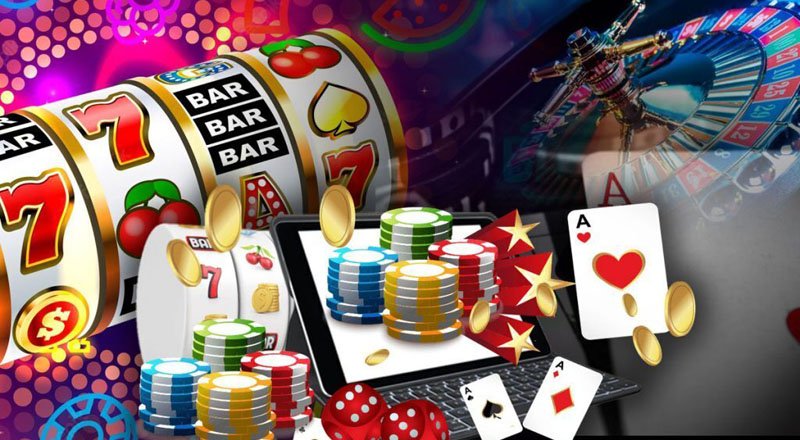
Casino games have been a well of amusement and thrill for numerous players around the globe. One of the key components that make these games captivating is the variety of playing cards employed in various types of games. Understanding the different kinds of cards can enhance your experience and improve your gameplay strategies. Regardless of whether you are drawn to traditional card games like Texas Hold’em and blackjack or newer casino offerings, each game relies on a distinct set of cards that influences the regulations and the flow of play.
In casino settings, cards come in various forms, each designed to meet the requirements of particular games. From standard decks to custom card types, the diversity plays crucial role in molding the mechanics of each game. By acquainting yourself with these cards and their applications, you can achieve deeper insights into the games and make more informed decisions at the table. This understanding not only enhances your overall gaming experience but also contributes to a more sophisticated approach to your odds of winning.
Types of Playing Cards
When it comes to casino games, the type of playing cards used can significantly impact the gameplay and strategy. The most frequent deck is the standard 52-card deck, which consists of four suits: clubs, and spades. Each suit contains thirteen ranks, from Ace to king. This standard deck is essential in numerous games, such as black-jack, where gamblers aim to form the best hand possible or approach 21 as they can.
Some casino games utilize unique decks specifically designed for those games. For example, the popular game of baccarat often uses multiple decks shuffled together, typically six or eight. This not only increases the complexity of the game but also impacts wagering strategies, as participants must account for the higher number of cards in play. Additionally, certain games may bring in jokers or wild cards, providing further diversity and thrill to the gambling experience.
In niche games, specialized decks may come into play. For instance, in games like Bridge or Pinochle, players might use unique rules with different card values or roles. These variations keep the gameplay new and allow for varied strategies to appear. Understanding the different types of playing cards and their specific uses in various casino games is key to enhancing one’s gambling experience and improving overall results at the tables. link vào vn88
Card Modifications in Gambling Activities
In casino activities, the type of deck utilized can significantly affect both the gameplay and the tactics employed by players. Most classic playing card activities, such as 21 and five-card draw, typically utilize a regular 52-card pack. However, modifications do exist where extra wild cards or even several packs are used. For example, in 21, some gaming establishments may employ one to eight decks, which can change the odds and the fundamental strategy required to play effectively. Participants must be cognizant of the deck composition, as it influences the casino advantage.
Another common modification in casino playing card activities is the utilization of specialized or custom decks. For instance, some poker games might use a set of cards that includes unique graphics or patterns, which can enhance the atmosphere at the gaming table. These specialized packs often function to distinguish between different play formats or loyalty initiatives within the gaming establishment. While the standard rules of the activity remain the same, the visual appeal can affect participant involvement and enjoyment.
Lastly, the shuffling techniques employed with various kinds of packs can also impact play. Gaming establishments often utilize automatic mixing machines that can effectively shuffle several packs effectively, making hand counting more difficult. The rate and manner of shuffling can differ widely based on the game and the casino’s policies. Understanding these deck variations is important for any participant looking to improve their tactics and overall enjoyment in casino activities.
Value of Card Worth
In gaming activities, the significance of individual card plays a crucial role in influencing the outcome of various games. Distinct activities assign specific worths to playing cards, influencing strategies and gamer choices. For example, in blackjack, cards ranging two through ten are rated at their actual worth, while face playing cards hold a value of 10, and the ace can be worth as 1 or eleven. Grasping these worths allows players to make knowledgeable decisions during gameplay, boosting their odds of winning.
Similarly, in Texas Hold’em, the value of card worths extends to hand and hand hierarchies. High worth playing cards can form stronger hands, such as two of a kind, straight hands, or flushes, which are essential for triumph in the game. Players must evaluate not only their own cards but also possible combinations their rivals might hold. This strategic complexity adds excitement and challenge, making playing card values a important factor in the appeal of poker appeal.
Additionally, the psychological aspect of playing card worths cannot be overlooked. Gamers may use the awareness of card values to deceive or confuse their rivals. By understanding how a card’s value can affect the game’s dynamics, players can more effectively handle risks and rewards, creating a exciting environment in gambling games. Whether playing for fun or for actual money, knowledge of playing card worths significantly shapes the overall playing experience.